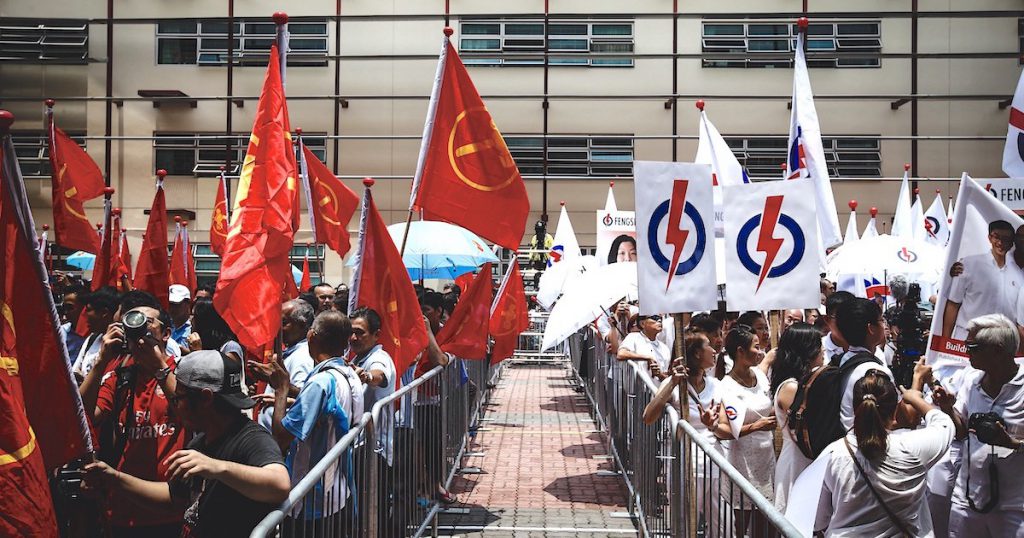According to the Singapore constitution, a general election has to be held every five years in Singapore.
Since the previous general election took place in September 2015, this means that we will soon see the dissolution of the parliament, which has a maximum term of five years from the first parliament sitting.
With talks of the next general election is just around the corner, most political parties are preparing for their election campaigns now.
However, Singapore — along with the rest of the world — has been hit by the COVID-19 virus since early this year. As a result of increasing cases on the daily, Singapore has implemented a slew of social distancing measures, which include:
- Closure of entertainment outlets such as bars, nightclubs, discos, cinemas, theatres
- Groups visiting shopping malls must not exceed 10 people
- Suspension of organised tours in public venues, such as sightseeing or guided walking tours
- Suspension of centre-based tuition and enrichment classes
- Suspension of religious services
- Cancellation of events and mass gatherings such as conferences, concerts and sporting events
In public places which are still open, Singaporeans who intentionally sit on a fixed seat marked as not to be occupied will also be deemed guilty of an offence under the Infectious Diseases Act.
Political Rallies Might Be Held Online
As social distancing measures are in full force now and as people are strongly encouraged to stay at home, it is reasonable to expect that this will impact the way the upcoming election will be conducted.
During the past election, thousands of Singaporeans attend live election rallies across the island to hear the debates of the election candidates.
Since gatherings are now prohibited in Singapore, what might potentially happen in the upcoming election rally is that the various political party rallies will be conducted digitally instead of physical rallies.
The next general election might be a trendsetter, and with election rallies moving online, one of the benefit of this is that it may potentially cost lesser to run the rallies digitally.
How Much Does A General Election Cost?
To understand more on the cost of election campaigns, we can first take a look at how much the various political parties spent in the last election.
In Singapore, the election is governed by the Parliamentary Elections Act (PEA).
The PEA lays out strict limits as to how much an election candidate can spend during their election campaign so that there is a level playing field and to prevent “money politics” in Singapore.
According to PEA, the maximum spending limit for election expenses is currently set at $4 for every elector listed on the register of electors.
If the candidate is contesting in a Group Representation Constituency (GRC), the amount is then calculated by dividing the total number of registered voters with the number of candidates in the GRC.
At the end of each election, each candidate has to declare and submit their expenses to the Elections Department of Singapore and these expenses are then open to inspection.
According to expenses submitted to the Elections Department, People’s Action Party (PAP) candidates spent $5.3 million on the 89 seats they contested during the last election.
Meanwhile, the expenses of the eight opposition parties contesting these seats totalled $1.8 million.
This brings the total election campaign expenditure to over $7.1 million. In contrast, the overall election campaign expenditure in 2011 totalled to only $5.5 million.
| 2011 | 2015 | |
| Total Expenses | $5,500,000 | $7,136,943 |
| PAP Expenses | N/A | $5,315,595 |
| Opposition Expenses | N/A | $1,790,776 |

Political Parties May Spend Less This Upcoming General Election
The expenses record submitted showed that candidates spent most of their budget on logistical items such as posters, banners, stage backdrop, fliers, food and refreshments.
In a digital rally format however, all of these expenses can be channeled into more effective digital outreach, such as Facebook advertising, which might actually be cheaper.
According to the Facebook advertising console, a $10 spending can easily reach 640 to 1,900 Singaporeans.

In comparison to a physical rally which have other sunk costs such as manpower, logistics and promotional materials, digital rally can actually be a lot more cost-effective.
Besides being cost-effective, online rallies are also easier to plan and execute. Election candidates can pre-plan their pointers and rallies earlier in a more controlled environment as opposed to a physical rally.
However, the possible downside for an online election rally is that it may pose a slight disadvantage to the oppositions.
The opposition parties have been known for attracting a strong crowd to their physical rallies, which may shift the ground during the nine days of campaigning.
With reduced opportunities for interaction, the opposition will be at a great disadvantage because they’re the ones who will need to invigorate the electorate and get people out to vote.
This could possibly signal be the death knell for Tan Cheng Bock’s new Progress Singapore Party. Without a chance to make his case, he will almost certainly lose because voters haven’t had a chance to hear him out.
What are your thoughts? Do you think online rallies will be feasible and fair?
Featured Image Credit: Chua Chin Hon











